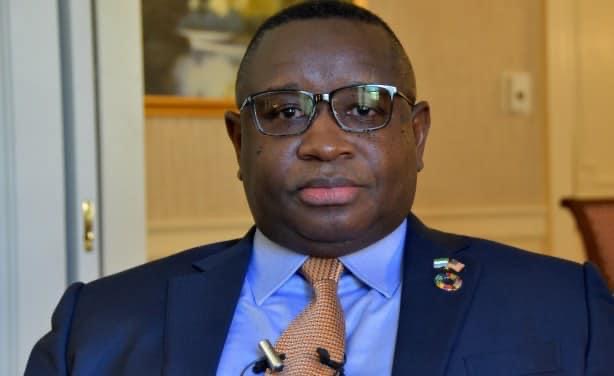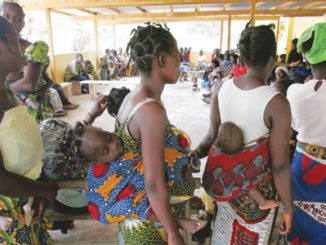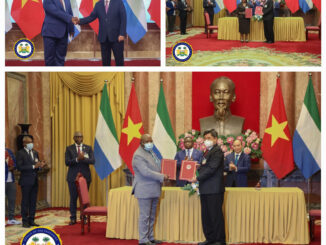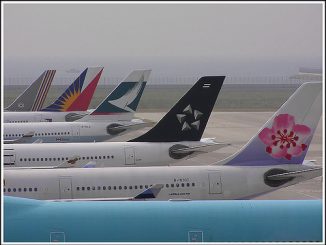
The US State Department has lashed at Sierra Leone for several human rights abuses and violations in its 2020 human rights country report.
The report highlights several human rights lapses committed by countries and their governments across the world in 2020.
On Sierra Leone, the State Department highlighted series of human rights concerns including unlawful and arbitrary killings by government agents, harsh prison conditions, serious acts of corruption, unlawful arrests and detention and oppression against opposition supporters.
“Significant human rights concerns were highlighted including unlawful or arbitrary killings by the government; harsh and life-threatening prison conditions; serious acts of corruption; and criminalization of same-sex sexual conduct”.
Unlawful Killings: The State Department report says, the Sierra Leone government took some steps to investigate, prosecute, and punish officials who committed abuses, but impunity persisted. It stressed that, there were several reports that the government or its agents committed arbitrary or unlawful killings in many places.
On April 29, a riot broke out at Pademba Road Correctional Center in Freetown leading to 31 fatalities, including one corrections officer and 30 inmates. Thirty-two corrections officers and 21 inmates’ sustained injuries, as security officials used live ammunition. The protest started as a result of health concerns after the first COVID case in the Prison was reported the previous day. In July, Sierra Leone Correctional Services (SLCS) authorities reported the riot was sparked by overcrowding.
In July, the report added, security forces allegedly killed six individuals in Makeni. The victims were participating in a protest against the government’s relocation of a power generator and transformers from Makeni to Port Loko District to support the airport’s operations. Residents reportedly burned tires on the streets and threw rocks during the protest. Authorities used tear gas and live ammunition in response. That security forces used excessive force in response.
Prison conditions
The country’s 21 prisons, designed to hold 2,375 inmates, held 3,808 as of August 2020. The most severe example of overcrowding was in the Freetown Male Correctional Center, designed to hold 324 inmates, which instead held 1,407 individuals as at that time. Some prison cells measuring six feet by nine feet held nine or more inmates. In most cases pretrial detainees were held with convicted prisoners. The SLCS reported that as of August, of the 3,808 persons held in prisons and detention centers, 1,289 had been convicted.
As of August, the SLCS reported 53 deaths in prisons and detention facilities due to malaria, respiratory infections, skin infections, hypertension, asthma, pneumonia, pulmonary tuberculosis, kidney diseases, sickle cell disease, and typhoid fever.
Arbitrary arrest and detention
The constitution and law prohibit arbitrary arrest and detention, but human rights groups such as Amnesty International and the HRCSL indicated that police occasionally arrested and detained persons arbitrarily, including members of the opposition. The government allows the SLP and the chiefdom police to hold suspects in police detention without charge or explanation for up to three days for suspected misdemeanors and up to 10 days for suspected felonies. Campaign for Human Rights and Development International (CHRDI) reported cases of illegal detentions at several police stations and the Freetown Male Correctional Center.
On May 1, police arrested Sylvia Blyden, former minister of social welfare, gender and children’s affairs and a journalist and opposition All People’s Congress (APC) party member, for alleged libel offenses involving social media posts critical of the government. Police detained her beyond the 72 hours legal limit provided by law. On May 29, authorities released Blyden on bail but then re-arrested her on June 2 for allegedly violating bail conditions. On June 25, police released Blyden again on bail. The charges were dropped after the law criminalizing seditious libel was amended in August.
Violence and Harassment: There were reports authorities used violence and harassment against journalists. In April Republic of Sierra Leone Armed Forces personnel beat two journalists, Fayia Amara Fayia and Stanley Sahr Jimmy, after Fayia photographed a COVID-19 quarantine center. The Sierra Leone Association of Journalists (SLAJ) condemned the incident and urged the military and police to investigate. Authorities charged the journalists with riotous conduct, and the case continued at the High Court in Kenema. In a few cases, police used excessive force when dealing with demonstrators and used public order law to deny requests for protests and demonstrations.
Impunity: Impunity remained a significant problem in the security forces, notably in the Sierra Leone Police (SLP). Observers noted police lacked training on crowd control and on human rights topics.
Report on the prison riot in Freetown.
Chiefs’ corruption and excesses: In addition to the formal court system, local chieftaincy courts administers customary law with lay judges, primarily in rural areas. Appeals from these lower courts are heard by the magistrate courts. Paramount chiefs in villages maintained their own police and courts to enforce customary local law. Chieftaincy police and courts exercised authority to arrest, try, and incarcerate individuals. Traditional trials were generally fair, but there was credible evidence that corruption influenced many cases. Paramount chiefs acting as judges routinely accepted bribes and favored wealthier defendants. Chiefs sometimes subjected both adults and children to arbitrary detention and imprisoned them unlawfully in their homes or “chiefdom jails.”
Minimum wage
The report also highlighted issues of the national minimum wage, which it said fell below the basic poverty line in the country. The Ministry of Labor and Social Security is responsible for enforcing labor law, including the minimum wage, but the number of labor inspectors was insufficient to enforce compliance, and the penalties for noncompliance were not commensurate with those for similar crimes. Although not stipulated by law, the customary workweek was 40 hours (60 hours for security personnel). There is no statutory definition of overtime wages to be paid if an employee’s work hours exceed 40.
All Rights Reserved. Copyright ©️ 2020 Mountain Waves



